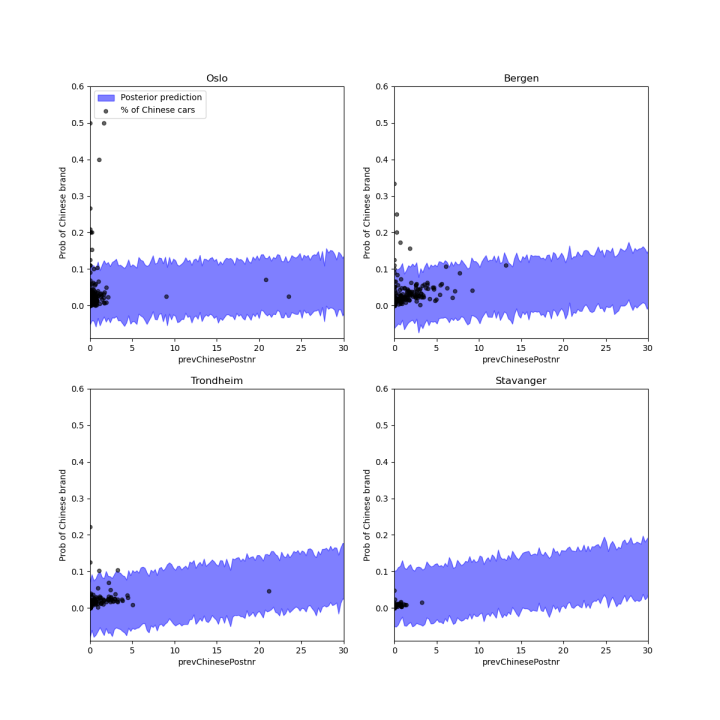Negotiating AI: The Trump Administration And Europe's Regulatory Landscape

Table of Contents
The Trump Administration's Approach to AI
Minimal Government Intervention
The Trump administration largely favored a hands-off approach to AI regulation, prioritizing the belief that minimal government intervention would best stimulate innovation and economic competitiveness. This philosophy contrasted sharply with the more interventionist stance adopted by many other nations.
- Limited direct AI-specific legislation: The administration largely avoided creating specific AI regulations, opting instead to focus on broader economic policies aimed at fostering technological advancement.
- Emphasis on self-regulation: The belief was that the tech industry itself was best positioned to regulate its own AI development and deployment, prioritizing ethical considerations through internal guidelines and best practices.
- Potential benefits: This approach arguably allowed for faster development and deployment of AI technologies, promoting US competitiveness in the global tech market.
- Drawbacks: However, it also raised concerns about a lack of accountability, potential for bias in algorithms, and insufficient safeguards for consumer data protection.
Focus on Economic Competitiveness
Maintaining US global technological dominance was a central aim, with AI viewed as a key driver of economic growth and national security. This focus shaped the administration's approach to AI policy.
- Investment in AI research: Funding for AI research and development initiatives was prioritized, albeit often within the context of national security applications.
- Emphasis on defense applications: A significant portion of AI investment was channeled into military and intelligence projects, reflecting a strong national security focus.
- Impact on the private sector: Government initiatives indirectly supported the private sector through funding for research and development, fostering an environment for growth in the AI industry.
Data Privacy Concerns (or lack thereof)
The Trump administration's approach to data privacy was comparatively lax compared to the EU. This lack of comprehensive data protection legislation directly impacted AI development and deployment.
- Limited data privacy legislation: The absence of strong federal data privacy legislation contrasted sharply with the EU's GDPR.
- Comparison with GDPR: Unlike the comprehensive protections afforded by the GDPR, the US had a more fragmented regulatory landscape, leading to concerns about the potential misuse of personal data in AI applications.
- Potential risks: This lax approach potentially increased the risks of data breaches, algorithmic bias stemming from biased datasets, and a lack of consumer control over their data.
Europe's Regulatory Landscape for AI
The GDPR and its Impact on AI
The General Data Protection Regulation (GDPR), enacted in 2018, profoundly shaped the development of AI within the EU. Its emphasis on data protection and individual rights set a high bar for AI developers.
- Data minimization and purpose limitation: The GDPR mandates that data collected for AI applications be limited to the minimum necessary and used only for specified, legitimate purposes.
- Consent and data subject rights: Individuals have significant control over their data, including the right to access, rectify, and erase their personal information.
- Challenges and opportunities: While GDPR compliance presents challenges for AI businesses, it also creates opportunities by fostering trust and encouraging the development of ethical AI systems.
The AI Act and Beyond
The EU's AI Act aims to establish a comprehensive regulatory framework for AI systems within the EU, further solidifying its position as a global leader in ethical AI.
- Risk-based classification: The AI Act categorizes AI systems based on their level of risk, imposing increasingly stringent requirements on higher-risk applications.
- Impact on different sectors: The Act will significantly impact various sectors, including healthcare, finance, and law enforcement, demanding transparency and accountability in the use of AI.
- Ongoing debates and future developments: The AI Act is still under development, and ongoing debates focus on specific provisions and their potential impact on innovation.
Ethical Considerations in European AI Regulation
Ethical considerations are central to the EU's approach to AI regulation, aiming to mitigate risks and ensure responsible AI development.
- Bias mitigation: The regulatory framework emphasizes the need to minimize bias in AI systems, ensuring fairness and equity.
- Transparency and accountability: Requirements for transparency and accountability aim to promote responsible AI deployment and provide recourse for individuals affected by AI systems.
- Impact on innovation: While the ethical focus might slightly slow down innovation, it ultimately aims to build trust and promote the long-term acceptance of AI.
Negotiating the Differences: International Cooperation and Challenges
Transatlantic Tensions
The differing approaches of the US and EU towards AI regulation create significant transatlantic tensions.
- Policy disagreements: The contrasting philosophies regarding data privacy, government intervention, and the pace of innovation lead to disagreements on international standards.
- Trade implications: These differences could create trade barriers and hinder the free flow of AI technologies and data across the Atlantic.
- Need for international standards: The lack of harmonized global standards for AI poses a significant challenge to international cooperation.
Finding Common Ground
Despite these differences, finding common ground is essential for fostering responsible AI development globally.
- Areas of potential agreement: Collaboration is possible on ethical considerations, such as bias mitigation and transparency, as well as on the development of standards for specific high-risk AI applications.
- Role of international organizations: International organizations, such as the OECD, can play a crucial role in facilitating dialogue and promoting the development of common standards.
- Soft law approach: A "soft law" approach, relying on guidelines and best practices rather than strict regulations, might be a viable option for initial cooperation.
Conclusion
The contrasting approaches of the Trump administration and the EU to Negotiating AI highlight the complex challenges of international cooperation in this rapidly evolving field. The US prioritized economic competitiveness and minimal government intervention, while the EU focused on ethical considerations and robust data protection. These differing priorities create significant challenges for international cooperation, potentially hindering the free flow of AI technologies and data. However, finding common ground, particularly around ethical considerations and standards for high-risk applications, is crucial for promoting responsible AI development and deployment globally. Further research and discussion on negotiating AI and related policies are essential to navigate these complex issues and build a future where AI benefits all of humanity. Explore the AI Act, GDPR, and related initiatives mentioned in this article to deepen your understanding of this crucial topic.

Featured Posts
-
 Guilty Plea Lab Owner Faked Covid 19 Test Results During Pandemic
Apr 26, 2025
Guilty Plea Lab Owner Faked Covid 19 Test Results During Pandemic
Apr 26, 2025 -
 Bullions Rise Amidst Trade Wars A Deep Dive Into Gold Price Records
Apr 26, 2025
Bullions Rise Amidst Trade Wars A Deep Dive Into Gold Price Records
Apr 26, 2025 -
 Chat Gpt And Open Ai Facing Ftc Investigation A Deep Dive
Apr 26, 2025
Chat Gpt And Open Ai Facing Ftc Investigation A Deep Dive
Apr 26, 2025 -
 Evaluating The Potential Of Chinese Manufactured Vehicles
Apr 26, 2025
Evaluating The Potential Of Chinese Manufactured Vehicles
Apr 26, 2025 -
 Stock Market Valuations Bof As Argument For Investor Calm
Apr 26, 2025
Stock Market Valuations Bof As Argument For Investor Calm
Apr 26, 2025
